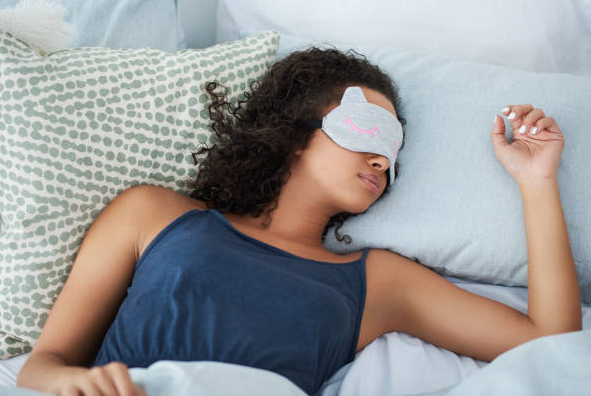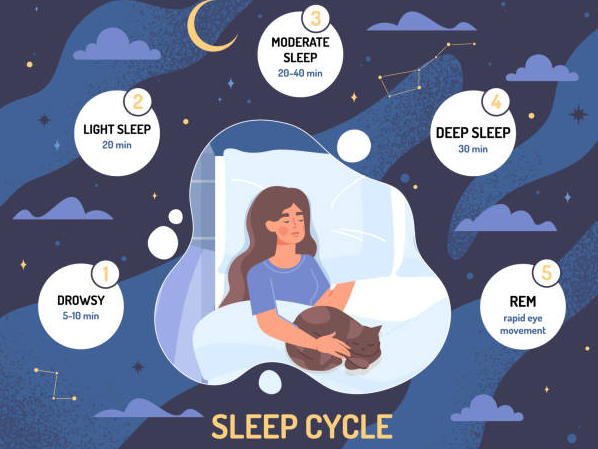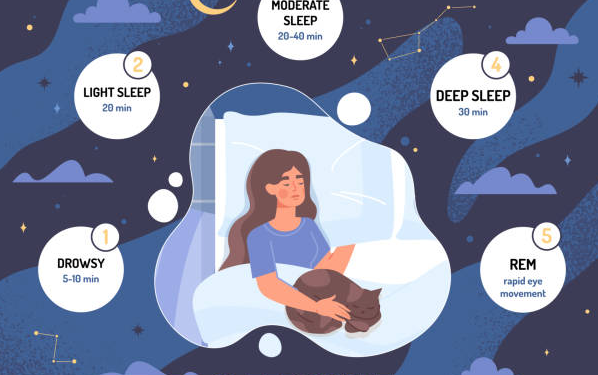Traveling can be exciting and adventurous, but it often disrupts our daily routines, including our sleep patterns. A healthy sleep routine is crucial for our overall well-being, and neglecting it during travel can leave us feeling exhausted and irritable. In this article, we will explore the importance of maintaining a healthy sleep routine while traveling and provide practical tips to ensure quality rest on your journeys.
Importance of a Healthy Sleep Routine
A consistent sleep routine plays a vital role in promoting physical and mental health. It helps regulate our circadian rhythm, the internal clock that determines when we feel sleepy or alert. When we stick to a regular sleep schedule, our bodies become accustomed to a set pattern, resulting in better sleep quality and overall well-being.
Challenges of Maintaining a Sleep Routine While Traveling
Traveling presents unique challenges to our sleep routine. Changing time zones, unfamiliar surroundings, and uncomfortable sleeping arrangements can disrupt our sleep patterns. Additionally, the excitement and stress associated with travel can make it difficult to relax and fall asleep. However, with some preparation and the right strategies, it is possible to maintain a healthy sleep routine while on the go.
1. Preparing for Travel
Preparing for travel entails thorough research on your destination, efficient packing, essential document checks, and a well-planned itinerary to make your journey smooth and enjoyable. Before embarking on your journey, it’s important to prepare yourself for a restful sleep experience.
Packing Essentials
Pack items that will help you create a comfortable sleeping environment. Consider bringing earplugs, an eye mask, and a travel pillow to minimize disturbances and maximize comfort.
Choosing the Right Accommodation
Select accommodation that prioritizes sleep quality. Look for hotels or guesthouses that offer quiet rooms, comfortable bedding, and blackout curtains to ensure a peaceful sleep environment.
2. Adjusting to a New Time Zone
One of the biggest challenges while traveling is adjusting to a new time zone. Here are some strategies to help you overcome jet lag and adapt more smoothly.
Gradual Adaptation
Gradually adjust your sleep schedule a few days before your trip. Start going to bed and waking up closer to the local time of your destination. This can help your body gradually acclimate to the new time zone.
Exposure to Natural Light
Get as much exposure to natural light as possible upon arrival. Sunlight helps regulate our internal clock, signaling to our bodies that it’s time to be awake.
Avoiding Napping
Resist the urge to take long naps during the day, especially when it’s close to bedtime at your destination. Short power naps can be refreshing but try to limit them to 20 minutes or less.
3. Creating a Comfortable Sleeping Environment
The environment in which we sleep greatly impacts the quality of our rest. Consider the following factors to create a sleep-friendly atmosphere while traveling.
Noise Reduction
Use earplugs or white noise machines to minimize external noises that could disrupt your sleep. If you’re sensitive to sound, consider using a noise-canceling app on your smartphone.
Temperature Control
Maintain a comfortable temperature in your sleeping area. If the room is too hot or cold, it can make it challenging to fall asleep. Adjust the thermostat or use blankets to achieve an optimal sleeping temperature.
Comfortable Bedding
If you find the hotel’s bedding uncomfortable, consider bringing your own pillow or a travel-sized mattress topper to enhance your sleeping experience.
4. Establishing a Bedtime Routine
Creating a consistent bedtime routine can signal to your body that it’s time to wind down and prepare for sleep. Implement the following practices to establish a relaxing routine while traveling.
Relaxation Techniques
Engage in activities that promote relaxation before bed, such as reading a book, practicing deep breathing exercises, or listening to calming music. Find what works best for you to unwind and prepare for a good night’s sleep.
Digital Detox
Avoid using electronic devices, such as smartphones or laptops, at least an hour before bed. The blue light emitted by these devices can interfere with the production of melatonin, a hormone that regulates sleep.
Sleep-Friendly Activities
Engage in activities that promote sleepiness, such as taking a warm bath, drinking a cup of herbal tea, or doing gentle stretching exercises. These activities can help calm your mind and prepare your body for sleep.
5. Maintaining Healthy Habits
While traveling, it’s important to maintain healthy habits that contribute to better sleep quality and overall well-being.
Regular Exercise
Engage in regular physical activity during the day, as it can help regulate your sleep-wake cycle. Take advantage of opportunities to walk, explore your destination, or use hotel gyms to get some exercise.
Balanced Diet
Maintain a balanced diet and avoid heavy meals close to bedtime. Choose lighter, nutrient-rich options that won’t leave you feeling too full or uncomfortable before sleep.
Limiting Alcohol and Caffeine
Alcohol and caffeine can disrupt your sleep patterns. Limit your intake of these substances, especially in the hours leading up to bedtime, to ensure a more restful sleep.
6. Dealing with Jet Lag
Jet lag can cause fatigue and make it challenging to adjust to a new time zone. Try the following strategies to minimize the effects of jet lag and promote better sleep.
Hydration
Stay hydrated during your journey by drinking plenty of water. Dehydration can exacerbate symptoms of jet lag, so make sure to carry a refillable water bottle and drink regularly.
Melatonin Supplements
Consider taking melatonin supplements, a hormone that helps regulate sleep, to aid in adjusting to a new time zone. Consult with a healthcare professional before starting any new supplements.
Light Therapy
Light therapy involves using specialized lamps or light boxes to expose yourself to bright light, which can help reset your internal clock and alleviate symptoms of jet lag.
7. Overcoming Sleep Disruptions
Sleep disruptions can occur while traveling due to various factors. Here’s how you can minimize their impact and ensure a more restful sleep.
Dealing with Noise
If you encounter noise disturbances, try using earplugs, playing white noise, or using noise-canceling headphones to block out the sounds and create a quieter environment.
Managing Discomfort
If you find yourself uncomfortable in your sleeping arrangements, address the issue promptly. Request extra pillows or blankets from the hotel staff, or adjust the room temperature to your preference.
Minimizing Stress
Traveling can be stressful, which can negatively impact your sleep. Practice stress management techniques, such as mindfulness meditation or journaling, to alleviate anxiety and promote relaxation.
Conclusion
Maintaining a healthy sleep routine while traveling is essential for overall well-being and enjoyment of your journey. By preparing for travel, adjusting to new time zones, creating a comfortable sleeping environment, establishing a bedtime routine, and maintaining healthy habits, you can ensure quality rest and make the most of your travels.
FAQs
Q: How long does it take to adjust to a new time zone?
A: The time it takes to adjust to a new time zone varies from person to person. It usually takes a few days to a week for most people to fully adapt.
Q: Can I use sleeping pills while traveling to aid sleep?
A: It’s best to consult with a healthcare professional before using sleeping pills, as they may have side effects and can interfere with your body’s natural sleep processes.
Q: What can I do if I experience insomnia while traveling?
A: If you have trouble falling asleep or staying asleep while traveling, try relaxation techniques, such as deep breathing or meditation, and create a calming sleep environment.
Q: Does exercise help improve sleep while traveling?
A: Yes, regular exercise can contribute to better sleep quality while traveling. Engage in physical activity during the day to promote a healthy sleep-wake cycle.
Q: Are there any natural remedies for jet lag?
A:Some natural remedies for jet lag include adjusting your sleep schedule before traveling, staying hydrated, and exposing yourself to natural light at your destination.


